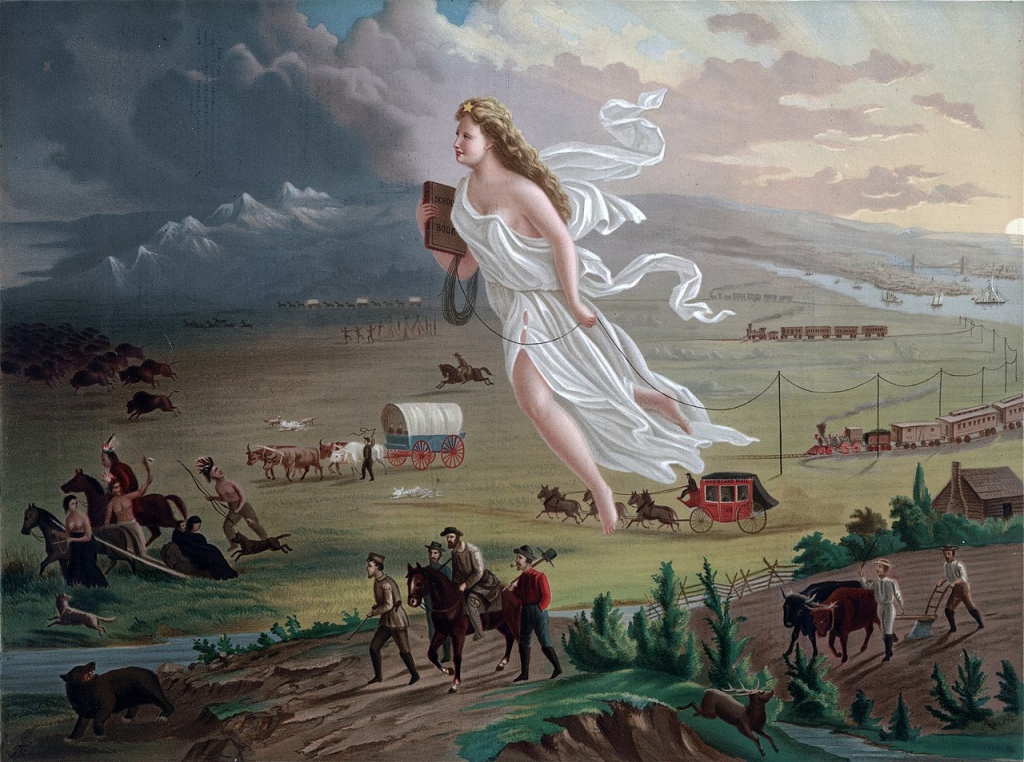
Previously:
Trump Admin Is Trying To Deport Mahmoud Khalil for Speech That’s ‘Contrary’ to US Foreign Policy
The Trump administration is trying to deport 30-year-old Mahmoud Khalil, a green card holder who was arrested by ICE agents over the weekend, for activity that is “contrary” to US foreign policy based on his involvement in protests critical of Israel’s war on Gaza at Columbia University.
Read More »
One hundred years ago this month, I was reminded by Portside’s “This Week in People’s History” feature (5/29/23), a constitutional amendment passed both houses of Congress, with large majorities, and went to the states for ratification. It remains a proposal, not a law, to this day, because the necessary three-quarters of states didn’t accept it.
…
In April 2023, the Washington Post (4/23/23) reported on the Foundation for Government Accountability, a Florida-based think tank with a lobbying arm, the Opportunity Solutions Project, that’s crucially behind these state-level moves to undermine rules to keep children from working long hours in dangerous conditions. The Iowa state senate had just approved an FGA-maneuvered bill letting children as young as 14 work night shifts.
…
Does every story on child labor need to mention the advocacy group? Of course not. But if you consider the rollback of child labor laws a problem, connected to other problems, then calling groups like them out adds something key to understanding that problem and how to address it.
Rolling Back Protections for Child Labor in the Name of ‘Parental Rights’
Related SourceWatch Articles:
Foundation for Government Accountability
American Legislative Exchange Council
There’s more, but I’m not going to beat a dead horse with this one. They’re basically the same groups that have been trying to privatize education, destroy unions, etc.
A court-ordered auction of the shares of the parent company of Venezuela-owned U.S. oil refiner Citgo Petroleum has attracted dozens of companies interested in the data and the auction process, sources with knowledge of the matter told Reuters on Monday.
Dozens of Firms Interested in US Auction of Citgo’s Parent Company
Previously:

Massive US Oil Caverns Sit Empty and Will Take Years to Refill
- Nation’s oil reserve is at 40-year-low after historic drawdown
- Experts say refilling will take decades, if it happens at all
Senator Brian Schatz is one of the more thoughtful Senators we have, and he and his staff have actually spent time talking to lots of experts in trying to craft bills regarding the internet. Unfortunately, it still seems like he still falls under the seductive sway of this or that moral panic, so when the bills actually come out, they’re perhaps more thoughtfully done than the moral panic bills of his colleagues, but they’re still destructive.
Senator Brian Schatz Joins The Moral Panic With Unconstitutional Age Verification Bill
Related:
Bipartisan Senate bill would ban social media algorithms for minors
Senators Brian Schatz (D-Hawaii), Chris Murphy (D-Conn), Katie Britt (R-Ala) and Tom Cotton (R-Ark) introduced the Protecting Kids on Social Media Act on Wednesday. The bill would set a minimum age of 13 to use social media sites, and would require parental consent and age verification for users under 18.

The Louisiana Purchase is usually presented as an incredible, inspiring moment in American history in which President Thomas Jefferson, wise, benevolent eyes twinkling under his powdery white wig, made an incredibly shrewd real estate deal with notorious, disgraced French emperor Napoleon Bonaparte and, with one stroke of his giant quill pen, doubled the size of the United States of America for the bargain price of $15 million, or just three cents an acre. What we don’t usually learn about is the negative domino effect this treaty had in terms of inspiring the concept of manifest destiny or the belief that white colonists had a God-given duty to expand across North America and redeem and remake the land in their own image.
The Messed Up Truth About The Louisiana Purchase

Fears over Chinese purchases of US cropland are vastly overblown. Lawmakers should slow down before imposing damaging new restrictions.
No, China Isn’t Gobbling Up America’s Farms
Related:



Bill Gates: America’s Top Farmland Owner
Bill Gates Finally Explains Why He’s Buying So Much U.S. Farmland
I’m more worried about ‘Farmer Bill’, who claims that he owns “less than 1/4000 of the farmland”.
You must be logged in to post a comment.